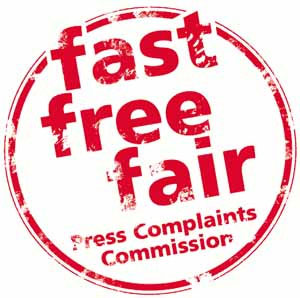Dear Sirs, Invest in ME is a UK charity whose objective is to educate health care organisations and the public about the neurological illness Myalgic Encephalomyelitis (ME). Recently the following newspapers have carried the same, or very similar stories all highlighting the opinions of Professor Simon Wessely of King’s College, London – specifically his views on Myalgic Encephalomyelitis (ME) (sometimes referred to as Chronic Fatigue Syndrome (CFS)) – The Sunday Times ("Shoot the medical messenger – see if that’ll cure you" - Rod Liddle 31 July) The Times (6 August 2011 - Stefanie Marsh) Observer (“Chronic fatigue syndrome researchers face death threats from militants” -Robin McKie - 21 August 2011) Spectator ("Mind The Gap" – Wessely -26 August) Daily Telegraph ("Protestors have got it all wrong on ME" 27 August 2011 Max Pemberton)
The articles are conspicuous mainly because they all provide Professor Wessely with a platform to publicise his views on ME whilst at the same time repeating Professor Wessely’s alleged death threats against him from ME patients – without providing any proof of the veracity of these allegations. That these articles all seem to follow on one from another in different newspapers during a very short period of time does demonstrate to us that this is a coordinated attempt by the editors of these newspapers to distort the facts around this disease. ME is a serious, disabling and chronic organic (i.e. physical not mental) disorder. ME has been classified by the World Health Organisation (ICD 10 G 93.3) as a neurological illness affecting approximately 200,000 individuals within the UK. It is also accepted by the UK government as a neurological illness of severe disability. ME patients have been banned from donating blood for life and are not allowed to donate live or deceased tissue unless the condition has resolved according to the UK donor selection guidelines. All of the articles repeat, or allow to be repeated, the same inaccuracies presented by Professor Wessely embedded in his opinion that ME is a somatoform illness. This clearly goes against the WHO classification, the UK government policy and an enormous body of evidence from biomedical research.
There is little impartiality in these stories – indeed Sam Lister, Health editor of the Times, was seen to use Twitter to Professor Wessely’s wife congratulating himself on the ‘spread’ after his newspaper had published one of the articles about Professor Wessely -
SamListerTimes Sam Lister Times
The editors of these newspapers have not allowed an opportunity to be provided for our charity, or others or people with ME, or the so called militant activists, to respond with a similar article. They routinely ignore letters in reply and are not serving the public interest with the distortions in their biased articles.
From the Editors’ Code of Practice (which states that “All members of the press have a duty to maintain the highest professional standards”) we specifically wish to complain about the editors’ conduct on the following grounds – Accuracyi) The Press must take care not to publish inaccurate, misleading or distorted information, We believe the editorial procedures in these newspapers have not been rigorous enough. The views of Professor Wessely with regard to ME are, we feel, extremist and largely inaccurate and the public will have been given a completely distorted view of this disease by reading these articles.
ii) The Press, whilst free to be partisan, must distinguish clearly between comment, conjecture and fact. The editors and journalists participating in the production of these articles have not been careful enough to distinguish between fact and conjecture.
All of the articles allow sycophantic homages to Professor Wessely and his
views, whilst painting Professor Wessely as a victim. Yet they avoid mentioning the
damage being done by psychiatrists enforcing their doctrine and theories on sick
and vulnerable patients suffering from an organic illness. The repetition of the alleged death threats to Professor Wessely has had no research to corroborate the fact that multiple researchers have received death threats – as has been stated in The Telegraph. We only have Professor Wessely’s allegation – which is unproven. Opportunity to Reply
A fair opportunity for reply to inaccuracies must be given when reasonably
called for. These newspapers have not allowed any fair opportunity for replies or requested any opportunity to reply. They have not provided a similar amount of space for anyone to refute Professor Wessely’s claims. Harassment i) Journalists must not engage in intimidation, harassment or persistent pursuit. One could argue that the behaviour of the editors of these newspapers, via their coordinated efforts to provide biased articles in support of one person’s viewpoint, are harassing and intimidating to ME patients. These articles have caused great distress for many sick and vulnerable patients who do not have the means or the health to reply. As such the patients are cheap targets for these editors. Discrimination i) The press must avoid prejudicial or pejorative reference to an individual's race, colour, religion, gender, sexual orientation or to any physical or mental illness or disability The tone of the articles is completely biased and denigrates ME patients and trivialises the disease itself as not of organic origin – remember the WHO and UK government classification and position on this.
3. Whenever the public interest is invoked, the PCC will require editors to demonstrate fully that they reasonably believed that publication, or journalistic activity undertaken with a view to publication, would be in the public interest. Your Code of Conduct states that the Public interest includes
ii) Protecting public health and safety.
It can only be in the public interest to publish stories eulogising Professor Wessely if the victims at the receiving end of his particular brand of doctrine are allowed a similar opportunity to present their views. In our opinion these articles, by their content and their contiguity, and being published consecutively in one paper after another, are misleading the public due to their extremely poor research, lack of scientific rigour and due to the total absence of any reasonable editorial process. There seems to be no editorial discipline at all invoked. We contend that these newspapers have misled the public. Where is the right to reply, where is the equal coverage for ME patients – patients for whom Professor Wessely and his group of followers will never be able to provide anything of use?
We all realise what a stranglehold exists on what is written in the press with regard to ME, especially given that Professor Wessely occupies a prominent position on the board of the Science Media Centre. But we hope that the Press Complaints Commission will investigate this clear breach of ethics and procedures by investigating this spate of coordinated attacks and propaganda against ME patients and their families. If it does not it will further undermine the PCC as any worthwhile entity,
Yours Sincerely, The Trustees of Invest in ME
Return to IiME's Press Complaints Commission home page
|

